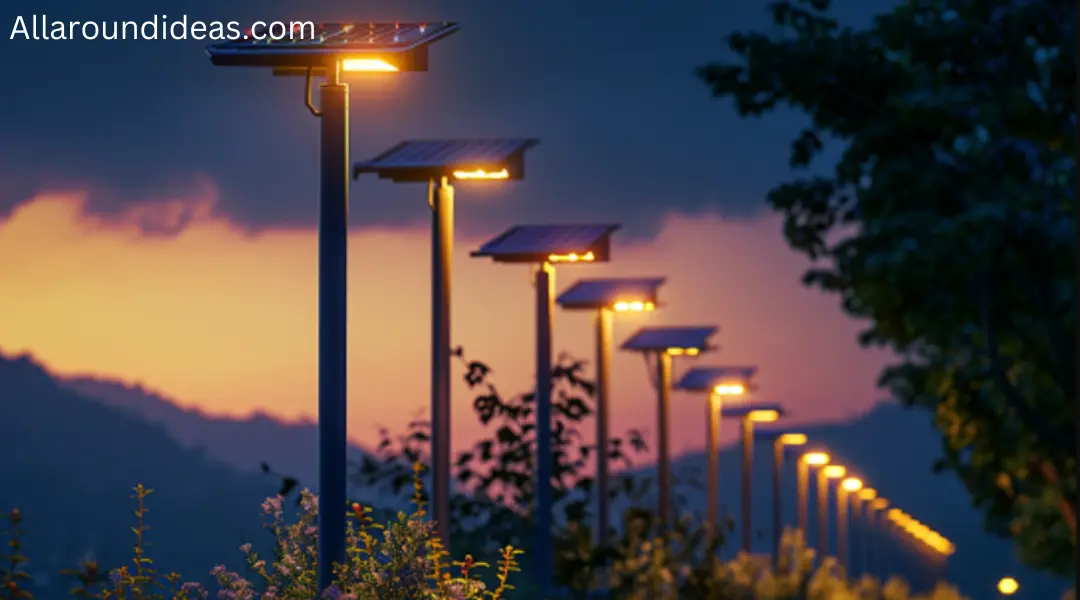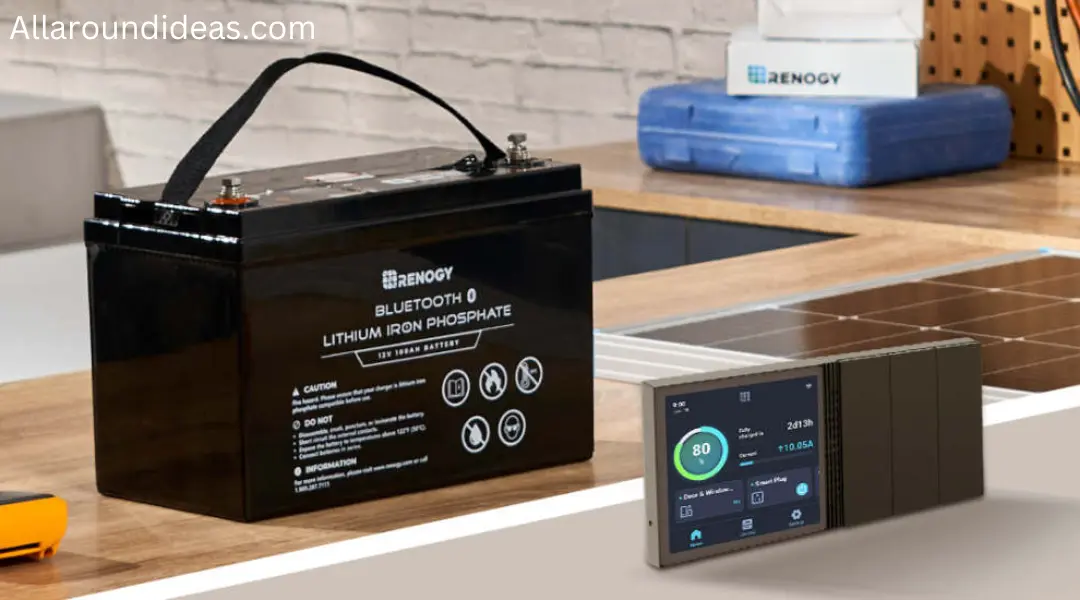As the world increasingly seeks sustainable and eco-friendly energy solutions, solar lighting has emerged as a popular alternative for outdoor and indoor illumination. Harnessing the power of the sun, solar lights are versatile, efficient, and environmentally friendly. This article explores the different types of solar light, their applications, how they work, and the pros and cons associated with their use.
What Are Solar Lights?
Solar light is a lighting fixture that use solar energy as their power source. They consist of solar panels that capture sunlight, convert it into electricity, and store it in batteries for later use. This innovative technology allows solar lights to operate independently of the electrical grid, making them ideal for various applications.
How Solar Lights Work
- Solar Panels: Solar lights are equipped with photovoltaic (PV) panels that convert sunlight into electrical energy during the day.
- Battery Storage: The electricity generated is stored in rechargeable batteries within the light fixture. These batteries store energy for use when sunlight is not available, such as during the night.
- LED Bulbs: Most solar lights use energy-efficient LED bulbs that consume less power, maximizing the use of stored energy and extending the light’s operational hours.
- Light Sensor: Many solar lights come with built-in light sensors that automatically turn the lights on at dusk and off at dawn, optimizing energy use.
If you want some information about Solar Battery and want to buy them, then check out our previous post.
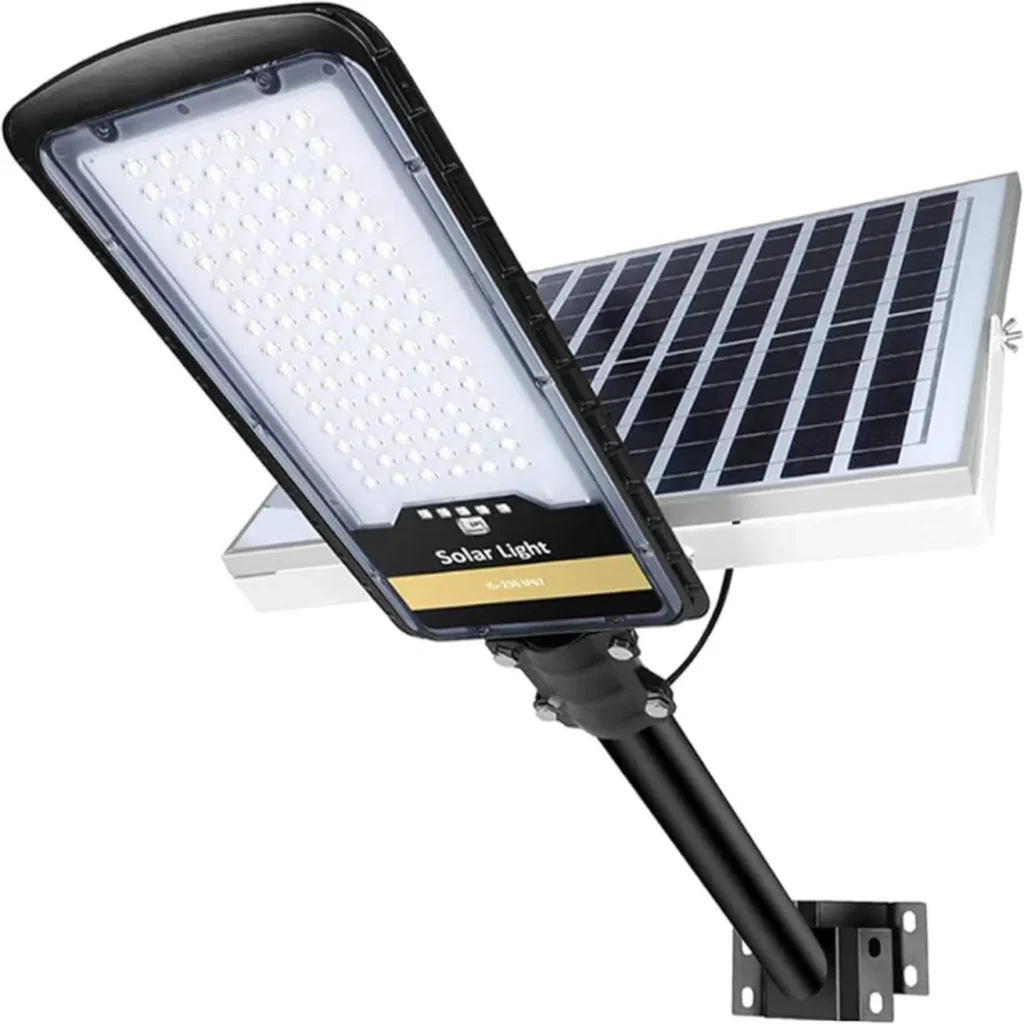
Types of Solar Lights
There are several types of solar lights, each designed for specific applications:
1. Solar Path Lights
- Description: Designed to illuminate pathways, driveways, and gardens, solar path lights are typically low-profile fixtures that provide gentle lighting.
- Applications: Ideal for residential gardens, walkways, and landscaping.
2. Solar Flood Lights
- Description: These powerful lights offer broad illumination and are often used for security purposes or to light up large outdoor areas.
- Applications: Suitable for driveways, parking lots, and backyards.
3. Solar String Lights
- Description: A decorative option, solar string lights consist of small bulbs attached to a wire, providing a warm glow for outdoor spaces.
- Applications: Perfect for patios, balconies, and festive occasions.
4. Solar Garden Lights
- Description: These lights are specifically designed for gardens, often featuring decorative elements that enhance landscaping.
- Applications: Used to highlight plants, flowers, or other garden features.
5. Solar Spotlights
- Description: These lights focus a beam of light on a specific area, making them ideal for highlighting architectural features or landscaping elements.
- Applications: Commonly used for lighting sculptures, trees, and entryways.
6. Solar Security Lights
- Description: Equipped with motion sensors, these lights automatically turn on when they detect movement, enhancing security.
- Applications: Used near entrances, garages, and other vulnerable areas.
If you want some information about Solar Battery and want to buy them, then check out our previous post.
Pros of Solar Lights
1. Eco-Friendly
Solar lights are powered by renewable energy, reducing reliance on fossil fuels. By utilizing solar power, users can significantly decrease their carbon footprint and contribute to a more sustainable environment.
2. Cost-Effective
While the initial investment in solar lights can be higher than traditional electric lights, they can lead to long-term savings. Solar lights do not require electricity from the grid, resulting in lower energy bills. Additionally, they have minimal maintenance costs since they have no wiring or electricity bills.
3. Easy Installation
Solar lights are easy to install because they don’t require wiring or electrical connections. Users can place them in any location that receives adequate sunlight, allowing for flexibility in design and placement.
4. Low Maintenance
Most solar lights require very little maintenance. They typically come with durable materials designed to withstand outdoor conditions, and the LED bulbs have long lifespans, reducing the need for frequent replacements.
5. Versatile Applications
Solar lights are suitable for a wide range of applications, from garden lighting to security lighting. Their versatility allows them to enhance both aesthetic appeal and functionality in various settings.
6. Safety
Without electrical wiring, solar lights reduce the risk of electrical hazards, making them safer for outdoor use. Additionally, they can illuminate dark areas, improving visibility and safety for pedestrians.
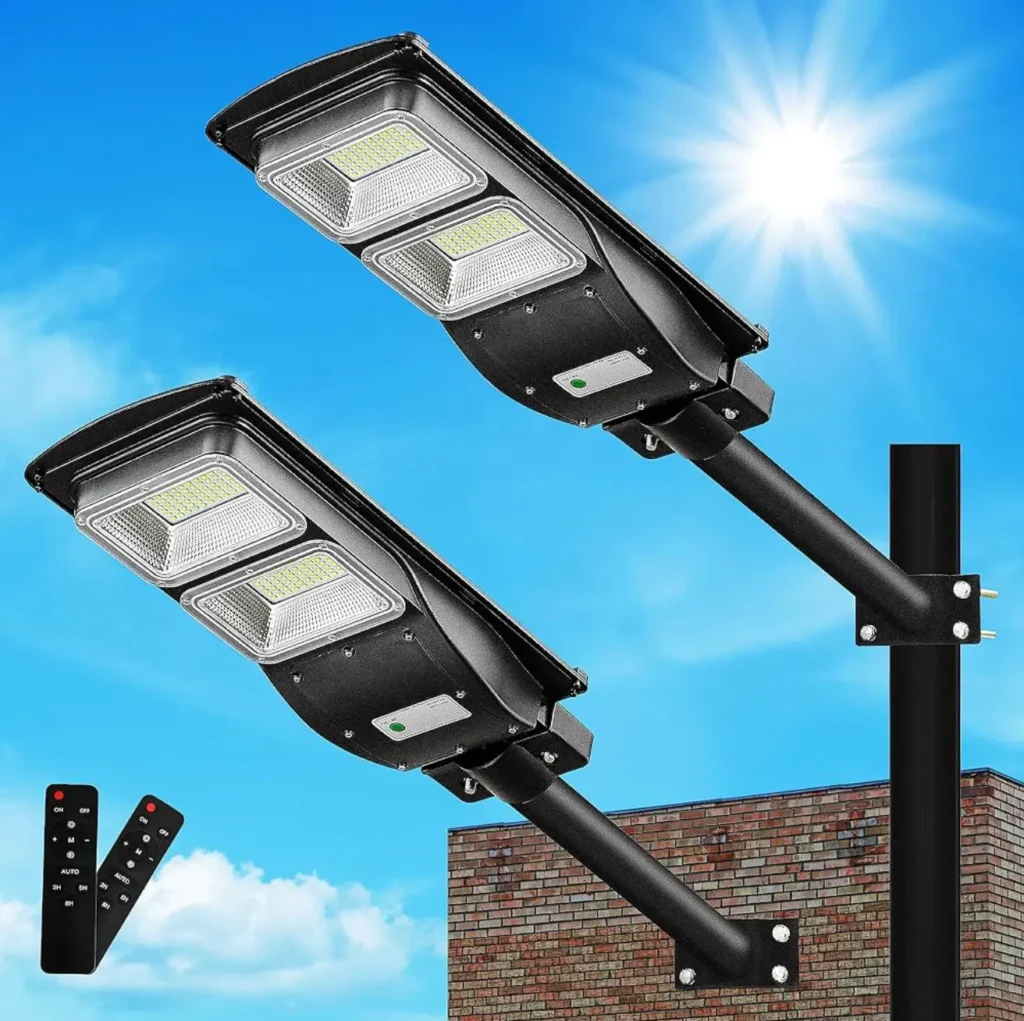
Cons of Solar Lights
1. Weather Dependency
Solar lights rely on sunlight to function effectively. Cloudy days, rainy weather, or seasonal changes can reduce their charging efficiency, leading to less illumination during the night.
2. Limited Brightness
While advancements in solar technology have improved brightness levels, solar lights may not provide the same intensity as traditional electric lights. This can limit their effectiveness in larger areas or for specific applications that require bright, focused lighting.
3. Initial Costs
Although solar lights can save money in the long run, the initial investment can be higher than traditional lighting options. For larger installations, the cost of purchasing multiple solar fixtures can add up.
4. Battery Replacement
The rechargeable batteries in solar lights have a limited lifespan and will need to be replaced every few years. This can add to the overall maintenance costs over time.
5. Aesthetic Limitations
While some solar lights are designed to be decorative, others may have a utilitarian appearance that doesn’t match every style of outdoor decor. Users may find it challenging to find solar lights that fit their aesthetic preferences.
6. Performance Variability
The performance of solar lights can vary significantly based on the quality of the components used. Lower-quality products may not last as long or perform as well, making it essential to choose reputable brands.
If you want some information about Solar Battery and want to buy them, then check out our previous post.
Factors to Consider When Choosing Solar Lights
When selecting solar lights for your needs, several factors should be considered:
1. Purpose
Determine the primary purpose of the lights. Are you looking for security lighting, decorative lighting, or pathway illumination? This will help narrow down your options.
2. Brightness
Consider the brightness of the solar lights, measured in lumens. Higher lumen ratings indicate brighter lights, which may be necessary for security or larger areas.
3. Battery Capacity
The capacity of the battery affects how long the lights will shine after charging. Look for lights with higher capacity batteries for longer-lasting illumination.
4. Solar Panel Quality
The efficiency of the solar panel affects how quickly and effectively the battery charges. Higher-quality solar panels will maximize energy absorption.
5. Durability
Check the materials used in the construction of the solar lights. Weather-resistant and durable materials will ensure that the lights can withstand outdoor conditions over time.
6. Installation Requirements
Assess whether the lights require any additional setup or installation. Most solar lights are easy to install, but some may need more complex mounting or positioning.
7. Warranty and Customer Reviews
Look for products that come with a warranty and check customer reviews to gauge the performance and reliability of the solar lights.
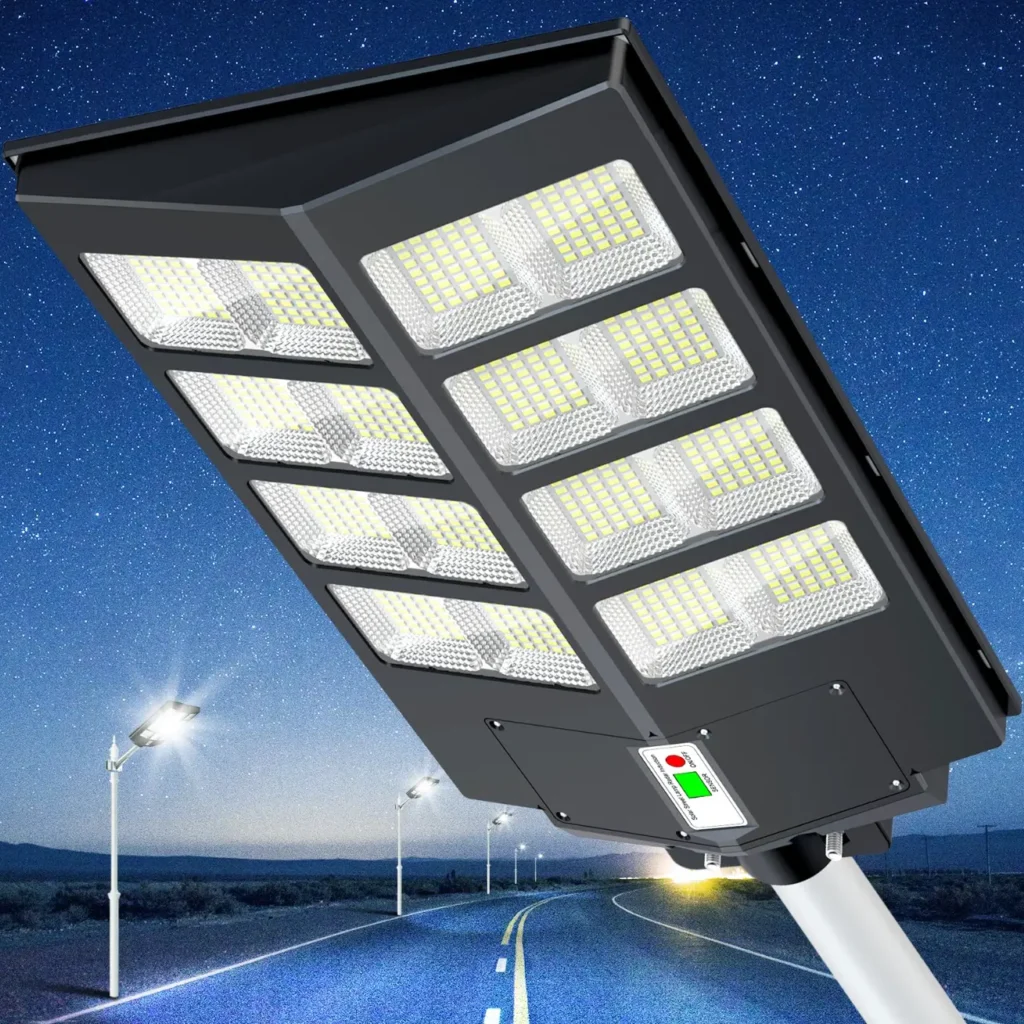
The Future of Solar Lighting
The future of solar lighting is bright, with continued advancements in technology and design. Innovations such as smart solar lights equipped with sensors, timers, and connectivity features are enhancing usability and functionality.
Additionally, as the demand for renewable energy sources increases, manufacturers are focusing on improving the efficiency of solar panels and battery storage, leading to better performance in various weather conditions.
Conclusion
Solar light offers a sustainable and cost-effective lighting solution for both residential and commercial applications. With a variety of types and styles available, they can enhance the aesthetic appeal and functionality of outdoor spaces while promoting environmental sustainability.
However, potential users should consider the pros and cons of a solar light, including their dependence on weather conditions and initial costs. By understanding these factors and choosing the right solar lights for their specific needs, individuals can enjoy the benefits of solar illumination while contributing to a greener planet. As technology continues to evolve, solar lighting will undoubtedly play an increasingly important role in the transition to renewable energy solutions.
If you want some information about Solar Battery and want to buy them, then check out our previous post.
